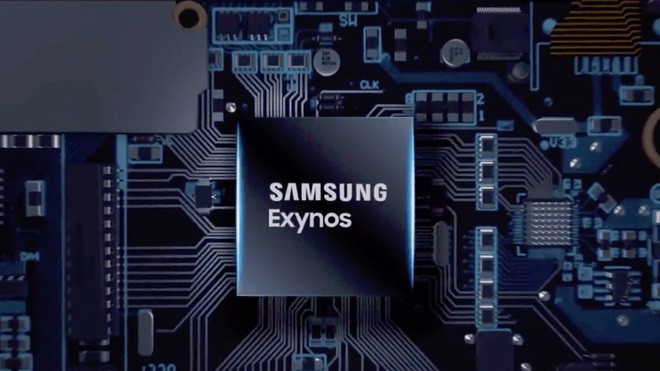Samsung is making custom Exynos chips for Google
Samsung launched the first generation of Exynos chipsets in 2011. Over the past 9 years, Samsung's Exynos chips have always been judged to be somewhat weaker than rivals from Qualcomm. Even recently, many people sent feedback asking Samsung to completely remove Exynos chips and only use Qualcomm chips on its high-end smartphones.

Even so, it looks like this will never happen. Samsung's next-generation high-end Exynos processor could perform better as the company is transitioning from Mongoose CPU cores to ARM CPU cores. Not only that, Samsung also considered removing ARM's Mali GPU to switch to AMD's Radeon GPU.
In fact, Samsung is even cherishing bigger plans for its Exynos chips in the future. According to a new report from South Korea, the company is developing the first custom Exynos chipset for Google. In particular, this processor is expected to launch soon this year.
The source said the chipset will be based on Samsung's 5nm LPE process. It will have a total of 8 cores, including 2 Cortex-A76 CPU cores and 4 Cortex-A55 CPU cores. In addition, this chip will probably use ARM's unreleased Mali MP20 GPU, based on the Borr micro architecture. However, Google seems to have decided to eliminate Samsung's ISP and NPU to use its own Visual Core ISP and NPU.

According to a Reuters report last year, Google recruited many people from Broadcom, Intel, Nvidia and Qualcomm with the desire to create chipsets for its smartphones and servers, to reduce its dependence on Intel and Qualcomm.
The company even created a team of 16 veteran engineers in Bengaluru, India and plans to hire hundreds more people in the future. Even so, Google still needs a custom Exynos chip, at least for now.
If the above information is correct, it is likely that Google will use the upcoming chipset on its Pixel phones in the future (firstly for the mid-range models), devices running Chrome OS or even server for data centers.

According to ETNews , Samsung created a new "Custom SoC" group operating in the Device Solutions division earlier this year. The team is led by Park Jin-pyo, who previously worked in the Foundry ASIC group.
The new group can also produce chipsets for Facebook's Oc / VR products. It is known that the group currently has about 30 members gathered from many different business groups, including Samsung LSI and will expand in the coming years. The move to form a new group is part of Samsung's larger plan to become the world's largest semiconductor company by 2030.
You should read it
- ★ Sorry, Samsung Pay: How Google Pay found its way to my heart (and wallet)
- ★ How to use Samsung Pay, add payment card to Samsung Pay
- ★ Manual Samsung TV remote most detailed
- ★ Samsung Galaxy S20 Ultra vs. Google Pixel 4: A camera comparison
- ★ Samsung will sell smart speakers with Bixby virtual assistant at the end of 2018